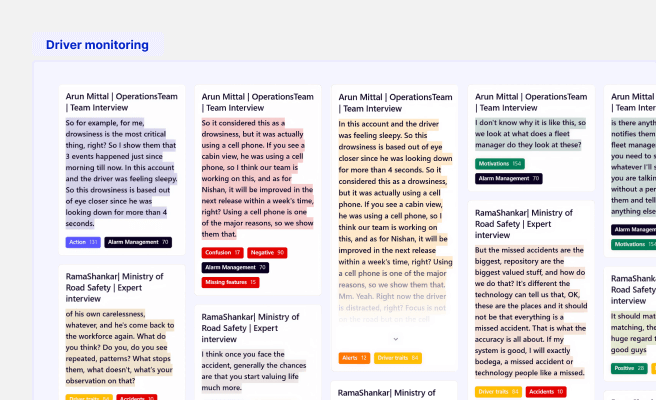Framework
<p>A framework is a foundational structure used to support the development of software, applications, or systems. Frameworks provide a standardized way to build and deploy projects, making the development process more efficient and consistent. They offer pre-written code, tools, and libraries, allowing developers to focus on the unique aspects of their projects rather than reinventing the wheel.</p>
<p>The concept of frameworks has evolved over time, with early examples emerging in the 1990s. Today, frameworks are an integral part of software development across various fields, including web development, mobile app development, and enterprise software.</p>
<h2>Components of a Framework</h2>
<p>Frameworks typically include several key components:</p>
<ul>
<li><strong>Libraries:</strong> Collections of pre-written code that developers can use to perform common tasks.</li>
<li><strong>APIs:</strong> Interfaces that allow different software components to communicate with each other.</li>
<li><strong>Development Tools:</strong> Tools for debugging, testing, and deploying applications.</li>
<li><strong>Documentation:</strong> Detailed guides and tutorials to help developers understand and use the framework effectively.</li>
</ul>
<h3>Types of Frameworks</h3>
<p>There are various types of frameworks, each catering to different aspects of development:</p>
<ul>
<li><strong>Web Frameworks:</strong> These frameworks, such as <a href="https://angular.io/" style="color:#2896FF; text-decoration:underline;">Angular</a> and <a href="https://reactjs.org/" style="color:#2896FF; text-decoration:underline;">React</a>, are used to build web applications.</li>
<li><strong>Mobile Frameworks:</strong> Frameworks like <a href="https://flutter.dev/" style="color:#2896FF; text-decoration:underline;">Flutter</a> and <a href="https://reactnative.dev/" style="color:#2896FF; text-decoration:underline;">React Native</a> focus on mobile app development.</li>
<li><strong>Enterprise Frameworks:</strong> These are used for large-scale business applications, such as <a href="https://spring.io/projects/spring-framework" style="color:#2896FF; text-decoration:underline;">Spring</a> for Java-based applications.</li>
</ul>
<h2>Benefits of Using Frameworks</h2>
<p>Frameworks offer numerous benefits that streamline the development process:</p>
<ul>
<li><strong>Efficiency:</strong> By providing pre-written code and tools, frameworks reduce development time.</li>
<li><strong>Consistency:</strong> Standardized structures and conventions lead to more maintainable and readable code.</li>
<li><strong>Scalability:</strong> Frameworks often include built-in features that support scaling applications as they grow.</li>
<li><strong>Community Support:</strong> Popular frameworks have large communities that contribute to improvements, plugins, and troubleshooting.</li>
</ul>
<h3>Challenges of Using Frameworks</h3>
<p>Despite their advantages, frameworks also present certain challenges:</p>
<ul>
<li><strong>Learning Curve:</strong> Developers need to invest time to learn how to use a new framework effectively.</li>
<li><strong>Performance Overheads:</strong> Some frameworks may introduce performance overheads due to their abstraction layers.</li>
<li><strong>Dependency Risks:</strong> Relying on third-party frameworks means depending on their maintenance and updates.</li>
</ul>
<h2>Real-World Examples</h2>
<p>Frameworks have been pivotal in developing various successful projects. For instance, <a href="https://www.tesla.com" style="color:#2896FF; text-decoration:underline;">Tesla</a> uses <a href="https://www.djangoproject.com/" style="color:#2896FF; text-decoration:underline;">Django</a> for some of its web applications, benefiting from its robust features and scalability. In the climate tech sector, frameworks like <a href="https://www.djangoproject.com/" style="color:#2896FF; text-decoration:underline;">Django</a> and <a href="https://flask.palletsprojects.com/en/2.0.x/" style="color:#2896FF; text-decoration:underline;">Flask</a> have been used to create platforms for monitoring and managing carbon footprints, demonstrating their versatility in handling complex data structures and user interactions.</p>
<h2>Conclusion</h2>
<p>Frameworks play a crucial role in modern software development by providing the necessary structure, tools, and libraries to streamline the process. They enhance efficiency, ensure consistency, and support scalability, making them indispensable for developers. As technology continues to evolve, frameworks will remain a key component in building innovative and impactful digital solutions.</p> <p>Increase user engagement that converts your demos into sales. Optimise your UX strategies with our audits.
<p>Fill out the <a href="https://tally.so/r/n97pxQ" style="color:#2896FF; text-decoration:underline;">UX Audit form</a> to get started. Ready to discuss your needs? <a href="https://cal.com/akhilak/what-if-design?duration=25" style="color:#2896FF; text-decoration:underline;">Book a consultation call</a> with us today.</p></p>

Let's scale your impact with great design.
Free consultation, no sales pitch
Thank you! Your submission has been received!
Oops! Something went wrong while submitting the form.
Let’s talk
Nothing great is built alone.
Let’s connect about your vision, our work and how we can collaborate.
Get in touch

